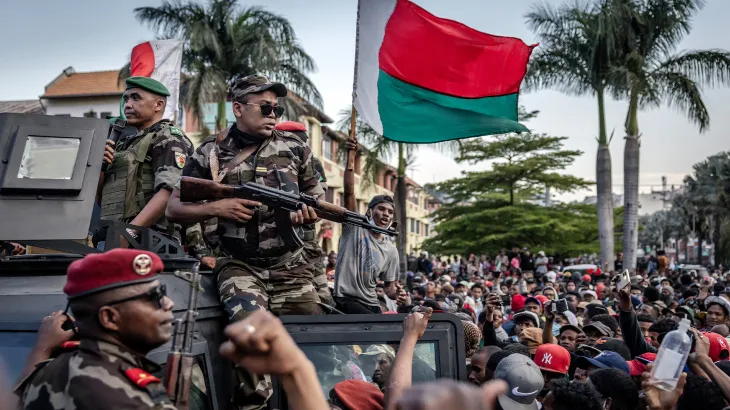The President of Madagascar has accused political opponents of attempting a coup as sections of the military appeared to side with protesters demanding his resignation. High tension grips the capital, Antananarivo, as civilians clash with security forces and soldiers join the demonstrations.
According to government statements, the president claims the unrest is part of a broader plot to topple the constitutional order. Officials say rogue elements within the military are colluding with protest leaders to destabilize the state. Military vehicles have been deployed to key locations, and the authorities have closed off sensitive areas in the city.
In recent days, protesters have marched demanding the president’s resignation amid accusations of mismanagement, economic hardship, and corruption. The arrival of uniformed soldiers in their ranks signaled a potential turning point, suggesting divisions within the security establishment itself.
The situation is fluid and volatile. Some units have withdrawn from key positions, while others remain in contested zones, creating uncertainty over who holds real control. Communications have been disrupted in parts of the city, and internet access was reportedly limited during the height of the clashes.
International observers have voiced deep concern. Diplomatic missions are monitoring developments closely, urging all parties to show restraint and urging peaceful resolution through dialogue. The implications are serious: if a full military split emerges, Madagascar could face a protracted crisis, constitutional collapse, or power vacuum.
For now, the president remains in office, though surrounded by growing dissent and armed uncertainty. For Malagasy citizens, the stakes are high — control of the army may determine the future of democracy, stability, and the rule of law in the island nation.


